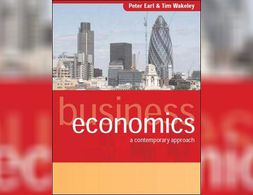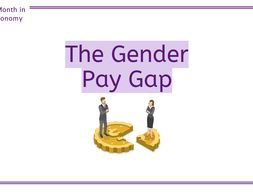✕
160 results
This edited volume explores how dependency theories can be adapted and applied to understand limits and possibilities for development in Latin America and Europe It explores core periphery relations across different sets of countries specific mechanisms of dependency as well as the role of race and gender in dependency analysis …
How and by whom are International Labour Standards set? How are they supervised, and how can workers’ organisations use the ILO supervisory mechanisms? What are the key principles of Freedom of Association, the right to strike and Collective Bargaining?
The module is designed to first present some of the main schools of thought from a historical and methodological perspective. Each week we explore and critically assess the main tenants of each school of thought. In the second part of the module we link history of economic thought and methodology to a specific and contemporary economic question. The second part allows you to engage with current economic issues with an awareness of methodology and methodological differences and with some knowledge of the history of economics.
This course is designed to provide students with an understanding of work-related gender issues and to enable students to analyze the issues using the tools of economics.
In this teaching pack, we look at the acquisition of Twitter by Elon Musk. In particular, we focus on what it means to take a company private and how the deal was financed.
This paper investigates how the concept of public purpose is used in Modern Monetary Theory (MMT). As a common denominator among political scientists, the idea of public purpose is that economic actions should aim at benefiting the majority of the society. However, the concept is to be considered as an ideal of a vague nature, which is highly dependent on societal context and, hence, subject to change over time. MMT stresses that government spending plans should be designed to pursue a certain socio-economic mandate and not to meet any particular financial outcome. The concept of public purpose is heavily used in this theoretical body of thought and often referred to in the context of policy proposals as the ideas of universal job guarantee and banking reform proposals show. MMT scholars use the concept as a pragmatic benchmark against which policies can be assessed. With regards to the definition of public propose, MMT scholars agree that it is dependent on the social-cultural context. Nevertheless, MMT scholars view universal access to material means of survival as universally applicable and in that sense as the lowest possible common denominator.
Colanders Microeconomics 11e is specifically designed to help today’s students succeed in the principles of economics course and grasp economics concepts they can apply in their daily lives
In this essay the author elaborates on the EU's perspective on the fast growing sector of the platform economy.
An essay of the writing workshop on contemporary issues in the field of Nigerian economics: In Nigeria, it appears that there is nothing in the constitution, which excludes the participation of women in politics. Yet, when it comes to actual practice, there is extensive discrimination. The under-representation of women in political participation gained root due to the patriarchal practice inherent in our society, much of which were obvious from pre-colonial era till date.
Marx’s theory of the falling rate of profit is not only empirically borne out, but the theory he proposed seems to describe accurately how that happens. Furthermore, the whole process is useful for understanding the history of contemporary capitalism.
Economic sociology is an entire subfield and one could write an series on it, so I’m going to stick to probably the most prominent economic sociologist and the founder of ‘new economic sociology’, Mark Granovetter.
The most successful multialternative theories of decision making assume that people consider individual aspects of a choice and proceed via a process of elimination. Amos Tversky was one of the pioneers of this field, but modern decision theorists – most notably Neil Stewart – have moved things forward. At the current stage the theories are able to explain a number of strictly ‘irrational’ but reasonable quirks of human decision making, including various heuristics and biases. Not only this, but eye movements of participants strongly imply that the decision-making process depicted in the theories is an accurate one.
Designed for both undergraduates and MBA students taking their first course in business economics, this text focuses on introducing students to economics as a framework for understanding business. It is structured around problems that decision-makers face, such as rejuvenating the firm in the face of declining demand.
Designed for a single-semester undergraduate course, this introductory economics textbook updates traditional macroeconomics to encompass twenty-first century concerns. In contrast to standard texts, the book starts with the question of human well-being, and then examines how economic activities can contribute to or detract from it.
Designed to give second-year undergraduates an intuitive understanding of basic mathematical techniques, and when and why they are applicable. Building on the traditional framework of calculus, the notion of a concave function is used to link the new algebraic methods with the more familiar graphical approachoand to introduce the modern use of duality in economic analysis.
One method of economic modelling that has become increasingly popular in academia, government and the private sector is Agent Based Models, or ABM. These simulate the actions and interactions of thousands or even millions of people to try to understand the economy – for this reason ABM was once described to me as being “like Sim City without the graphics”. One advantage of ABM is that it is flexible, since you can choose how many agents there are (an agent just means some kind of 'economic decision maker' like a firm, consumer, worker or government); how they behave (do they use complicated or simple rules to make decisions?); as well as the environment they act in, then just run the simulation and see what happens as they interact over time.
This book is designed for a one-semester or two-semester course in international economics, primarily targeting non-economics majors and programs in business, international relations, public policy, and development studies. It has been written to make international economics accessible to wide student and professional audiences.
Colanders Macroeconomics 11e is specifically designed to help today’s students succeed in the principles of economics course and grasp economics concepts they can apply in their daily lives.
What made the false assumption that saving the economy at all cost during a pandemic so popular? This paper discusses different pathways through the COVID-19 pandemic at national and international level, and their consequences on the health of citizens and their economies.
The Covid-19 pandemic has laid bare the deep structural rifts in modern capitalist economies. It has exposed and exacerbated the long-lasting systemic inequalities in income, wealth, healthcare, housing, and other aspects of economic success across a variety of dimensions including class, gender, race, regions, and nations. This workshop explores the causes of economic inequality in contemporary capitalist economies and its consequences for the economy and society in the post-pandemic reality, as well as what steps can be taken to alleviate economic inequality in the future. Drawing from a variety of theoretical and interdisciplinary insights, the workshop encourages you to reflect on your personal experiences of inequality and aims to challenge the way in which the issue is typically approached in economics.
Croatia adopted the euro as its currency on 1 January 2023, becoming the 20th member state of the eurozone. In this teaching pack, students learn what it entails to join the eurozone and discuss what its effects might be. In this way, the case helps students connect theoretical insights about monetary unions with real world knowledge and economic developments in the news.
This course is an introduction to the economic theories of financial crises It focuses on amplification mechanisms that exacerbate crises such as leverage fire sales bank runs interconnections and complexity It also analyzes the different perspectives on the origins of crises such as mistaken beliefs and moral hazard and discusses …
In this teaching pack, we look at the acquisition of Twitter by Elon Musk. In particular, we focus on what it means to take a company private and how the deal was financed.
The gender pay gap is a pressing issue that affects individuals and society as a whole, so it is important for economics students to understand it. Despite recent progress, women still earn less than men for the same jobs, leading to economic inequalities and reduced efficiency (see, for example, the recent report released by Moody’s). Understanding the causes and consequences of the gender pay gap is critical in developing policies that promote fairness and equality.
Shadow banking became one of the main features of modern market based financial capitalism and financial globalisation. Daniel Gabor locates this development in a Super-Cycle framework and sketches out opportunities to launch a new cycle that is green and just through financial regulation and publicly organised sustainable finance.
Due to the IMF’s focus on gender budgeting, this essay will mainly examine its gender budgeting recommendations as an example of its general inclination towards gender issues and its conception of gender equality. What does the IMF’s focus on gender equality really mean from a critical feminist perspective? What are its main objectives? What does it seek to change and to maintain? What concept or idea of women does it follow and what are the underlying theoretical foundations?
As seen with the United Nations significant promotion of the Sustainable Development Goals (SDGs) in the past few years, the issue of global development is of growing concern to many international organizations. As humanity continues to become more interconnected through globalization, the inequalities and injustices experienced by inhabitants of impacted countries becomes increasingly clear. While this issue can be observed in the papers of different types (e.g., different schools of thought) of economists throughout the world, the work of behavioral and complexity economists offer a unique, collaborative perspective on how to frame decisions for individuals in a way that can positively reverberate throughout society and throughout time.
This text summarizes the content of the 2018 Nobel Prize winner W. Nordhaus. It is extended by some critical perspectives on this topic. The short dossier gives an overview of the most important texts we have read in the climate economics reading group.
Pluralism includes mainstream economics. Our campaign for pluralism, including this series, have generally focused on ideas outside the mainstream on the basis that it gets plenty of attention already so we want to spend our time exposing people to alternatives. Nevertheless, mainstream ideas deserve some attention. On top of this, a curious feature of modern economics education is that some of the best ideas from mainstream economics are not even taught to undergraduates! During this series I will explore such ideas, starting today with the market construction technique known as ‘matching’.
This study aims to provide insights on how the Social and Solidarity Economy (SSE) is contributing to the future of work.
Aim: to work out jointly with students a systematic perception of how the gender factor can impact on economic and demographic development. This course is pioneering: it is the first time that such a course has been introduced into the curriculum of a Russian higher educational institution with a focus on economics.
An essay of the writing workshop on contemporary issues in the field of Nigerian economics: The adverse effect of climate change is overwhelming, not just in Nigeria but globally. Global warming is the result of hostile human activities that have impacted the environment negatively. This is the principal variable the government should tackle through practical innovations such as the acceptable implementation of Adaptation Policies and also through the adequate implementation of environmental tax. These will enhance pro-environmental behaviour which is fit for socio-political and economic activities for sustainability.
We use cookies on our website. Click on Accept to help us to make Exploring Economics constantly better!



























